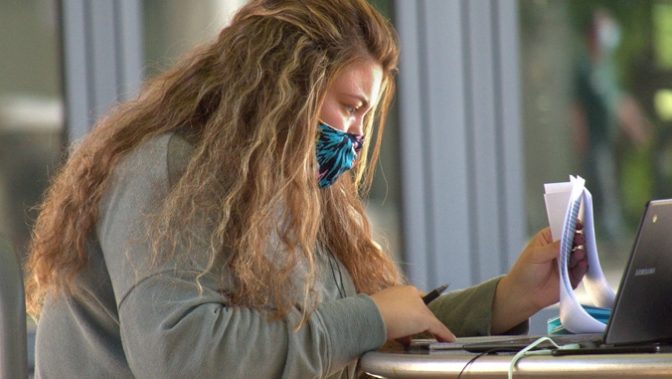By Staff Reports
(Hawaii)– The pandemic, even with all of its devastating effects, has brought out the best in some organizations and its employees.
Pivoting has become the watch word throughout the pandemic. We have seen a number of organizations successfully adapt to new constraints. Organizations that are flexible and innovative have welcomed change instead of wallowing in despair. Many of these entities have rapidly evolved into better, more efficient organizations.
There is another quality inherent in these organizations that is often taken for granted: a commitment to collaboration and joint decision-making. Teamwork and consensus-building, based on a mutual respect of each other’s input are critical to successful change, especially in the face of the pandemic’s challenges.
The University of Hawaiʻi is one of those organizations that showed it can evolve through the power of collaboration with faculty who are the best and brightest minds in a wide range of fields. The faculty also have a humility about them because they are committed to being life-long learners. Faculty have an intuitive sense that they don’t have a monopoly on knowledge. It is a gift to be freely shared to improve the quality of life for the community.
These faculty qualities were key to enabling UH to transition from traditional in-person classroom instruction to an online learning environment in a one-week turnaround. About a dozen faculty partnered with the UH administration to ensure all 10 campuses could continue to carry on its instruction and operations safely and securely without interruption. The results? Students could continue their classes to fulfill graduation requirements. In 2020, a total of nearly 10,850 degrees and certificates were awarded to students from all 10 UH campuses statewide.
This was no small feat. It was an exhilarating experience that has left an indelible impression on the UH faculty. Even in the collective bargaining process for a successor faculty contract, which is now well underway, there has been an unprecedented level of collaboration and congenial discussion. The iterative process to refine and define the non-financial terms and conditions of the contract is rapidly progressing forward—without the usual contentious debate and distrust of each other. Actively listening to the concerns and perspectives of each other has been productive.
The response and results gave all of us at the UH a new vision of possibilities. As the UH figures out the best path forward, collaboration is more crucial than ever, especially since 60% of our funding comes from the state. With Hawaiʻi’s $1.4 billion deficit and an economic recovery that many predict will take at least a few years, we need a meeting of the best minds. With faculty playing a key role in generating significant funding for research and support from tuition revenue, they deserve a seat at the decision-making table to ensure the ongoing success of the UH.
We must tear down artificial walls and silos and we must create opportunities for both faculty and administration to come together to build a better future for the UH. We owe it to the students, now and those in the future, to ensure the UH can maintain its reputation as one of the top research universities in the nation and a school of choice for Hawaiʻi’s students.
Change is not what makes people unhappy. Faculty are intensely aware of the current financial realities in which the UHmust operate. We know change is necessary. However, as with everyone else, faculty want to have a say in shaping their future. We believe any repositioning and reorganization of the UH approached carefully and collaboratively will yield the best results.
Christian Fern is executive director of the University of Hawaiʻi Professional Association (UHPA); Karla Hayashi is an English professor, UH Hilo and chair, UHPA negotiating committee; and David Duffy is a botany professor and graduate professor of zoology, ecology, evolution and conservation biology at UH Mānoa and UHPA negotiating committee member.

